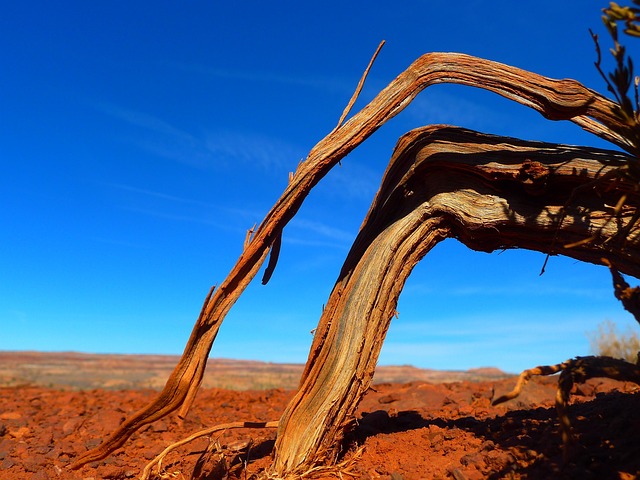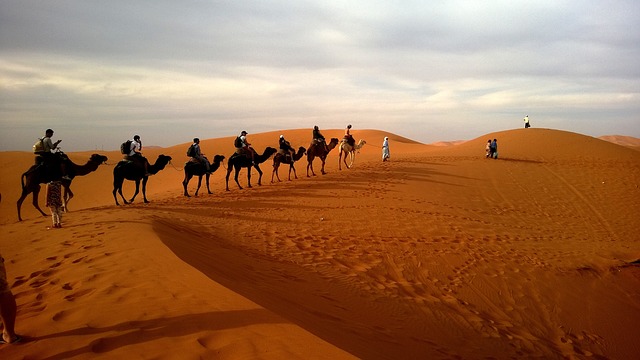Dubai's Evening Desert Safari is evolving to meet growing demand for eco-friendly experiences, driven by both locals and tourists concerned about traditional safari impacts. By prioritizing sustainability through solar power, waste reduction, and responsible wildlife viewing, Dubai can position itself as a leader in green tourism. Tour operators adopting these practices not only protect local ecosystems but also create memorable adventures for environmentally conscious travelers. The goal is to ensure the enduring popularity of Evening Desert Safari Dubai while preserving its natural beauty for future generations.
“Discovering Eco-Conscious Night Safari Planning in Dubai: A Sustainable Journey into the Desert. With an increasing demand for eco-friendly experiences, Dubai’s Evening Desert Safari is undergoing a transformation. This article explores the shift towards sustainable tourism, delving into the impact of nighttime desert operations on local ecosystems and offering best practices for organizers.
From defining key roles to promoting eco-conscious marketing strategies, we guide you through the essential elements of planning an environmental haven in the heart of the bustling desert. Let’s navigate this symphony of change together.”
- Understanding the Demand for Eco-Friendly Safaris in Dubai
- The Impact of Nighttime Desert Safari Operations on Local Ecosystems
- Best Practices for Planning an Eco-Conscious Evening Desert Safari
- Key Roles and Responsibilities of Eco-Safari Organizers
- Promoting Sustainability: Marketing Tips for Eco-Minded Tour Operators
Understanding the Demand for Eco-Friendly Safaris in Dubai

In Dubai, there’s a growing demand for eco-friendly Evening Desert Safari experiences. Tourists and locals alike are becoming increasingly conscious of the environmental impact of traditional desert safaris, which often involve excessive fuel consumption and noise pollution. This shift in preference presents a unique opportunity for planners to offer sustainable alternatives without compromising on the allure of a night out in the desert. By incorporating eco-conscious practices such as solar-powered vehicles, waste reduction strategies, and responsible wildlife viewing, Evening Desert Safari Dubai can cater to a broader audience seeking both adventure and environmental stewardship.
The demand isn’t just a trend; it’s a reflection of a global movement towards sustainable tourism. Eco-conscious travelers seek authentic experiences that minimize their ecological footprint while contributing positively to local communities. By embracing eco-friendly practices, desert safari planners can tap into this growing market, positioning Dubai as a leader in sustainable travel and ensuring the longevity of this beloved activity for future generations.
The Impact of Nighttime Desert Safari Operations on Local Ecosystems

The evening desert safari in Dubai, while captivating and popular among tourists, can have significant impacts on local ecosystems if not carefully managed. As vehicles traverse the dunes and campgrounds light up, artificial lighting disrupts the natural nocturnal patterns of desert wildlife. Many species rely on darkness for hunting, foraging, and migration, with some animals being particularly sensitive to light pollution. This disruption can lead to changes in their behavior, feeding habits, and even reproductive cycles.
Moreover, the increased human activity during these safaris can cause habitat disturbance and fragmentation. Trails left by vehicles and noise levels from campfires and music can affect the peace and quiet that desert landscapes thrive on. Eco-conscious planners play a crucial role in mitigating these impacts by promoting responsible practices, such as using energy-efficient lighting, implementing strict noise control measures, and ensuring minimal physical disturbance to the natural surroundings during nighttime operations.
Best Practices for Planning an Eco-Conscious Evening Desert Safari

When planning an eco-conscious evening desert safari in Dubai, it’s crucial to balance thrilling experiences with minimal environmental impact. Start by selecting tour operators committed to sustainable practices, such as using hybrid or electric vehicles and minimizing waste generation. Opt for guided safaris that educate visitors about local ecosystems and indigenous wildlife, fostering a deeper appreciation for the desert without leaving behind a carbon footprint.
Accommodations within the desert should prioritize energy efficiency and water conservation. Choose eco-friendly camps or lodges that utilize renewable energy sources, implement responsible waste management systems, and promote sustainable tourism principles. Encourage participants to bring minimal personal items, reuse or recycle materials provided, and respect the natural surroundings throughout their stay.
Key Roles and Responsibilities of Eco-Safari Organizers

Eco-conscious night safari planners play a pivotal role in showcasing the natural wonders of destinations like Dubai, specifically during its famous Evening Desert Safari. Their primary responsibility is to ensure that these experiences are both thrilling and environmentally sustainable. Planners must collaborate closely with local communities and conservation efforts to minimize the ecological footprint of safaris. This includes choosing routes that avoid sensitive habitats, implementing waste management strategies, and promoting responsible practices among tourists.
Moreover, they educate visitors about the region’s unique ecosystems and wildlife, fostering a deeper appreciation for nature. By integrating eco-friendly initiatives like solar-powered equipment, sustainable transportation, and local guide employment, these organizers contribute to preserving the beauty of landscapes like Dubai’s desert for future generations. Their efforts ensure that adventurous experiences align with sustainability goals, making every Evening Desert Safari an unforgettable and responsible journey.
Promoting Sustainability: Marketing Tips for Eco-Minded Tour Operators

Eco-conscious night safari planners are revolutionizing the tourism industry in places like Dubai, where the Evening Desert Safari has become a popular attraction. To stand out in this market, tour operators must showcase their commitment to sustainability. Marketing strategies should highlight responsible practices such as using energy-efficient lighting during desert safaris and promoting eco-friendly transportation options. By emphasizing these initiatives, operators can attract environmentally aware travelers seeking authentic experiences without causing harm to the delicate desert ecosystem.
Incorporating green marketing techniques allows tour companies to differentiate themselves while appealing to a growing segment of tourists who prioritize sustainability. Utilizing online platforms, sharing success stories on social media, and engaging in community outreach can help spread awareness about eco-conscious practices. For instance, promoting night safaris that avoid excessive noise pollution or showcasing how local communities benefit from these tours can resonate with travelers looking for meaningful experiences during their Dubai getaway.
The demand for eco-conscious night safari experiences in Dubai is growing, driven by both environmental awareness and a desire for sustainable tourism. By implementing best practices, organizers can minimize the impact on local ecosystems while delivering memorable adventures. Promoting these responsible tours through targeted marketing strategies will ensure that the Evening Desert Safari Dubai remains a vibrant and sustainable attraction for years to come.
